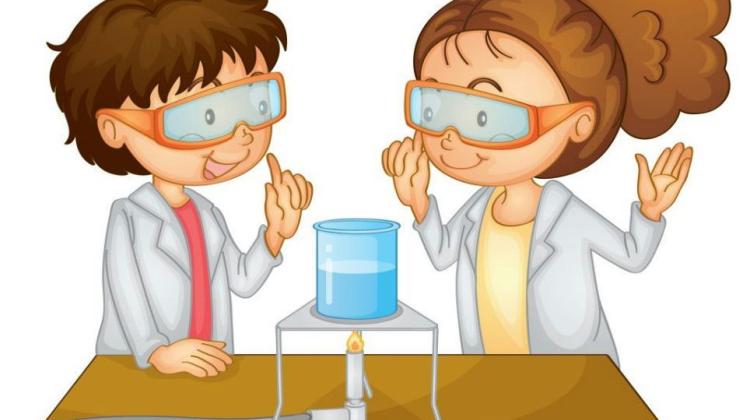Dr. Tomasz Sulej won the 6th Polish edition of FameLab

Dr. Tomasz Sulej from the Institute of Paleobiology of the Polish Academy of Sciences won the 6th Polish edition of FameLab, the finals of which took place on Saturday at the Copernicus Science Centre. In June, Sulej will represent Poland in the international edition of the competition in the UK.
FameLab is an international competition for scientists who are able to talk interestingly and intelligently about difficult scientific issues. The Polish edition is organized by the Copernicus Science Centre and the British Council.
In the competition finals, each of the ten finalists had three minutes to tell the story of the selected scientific issue.
The first place was awarded to Dr. Tomasz Sulej from the Institute of Paleobiology of the Polish Academy of Sciences. He also won the award of the association Rzecznicy Nauki (Spokespersons of Science), whose members include the participants of previous editions of the competition.
During his previous scientific work, the winner discovered several palaeontological sites in Poland with important implications for the evolution of vertebrates - new species of amphibians and reptiles. He also organized exploratory expeditions to Russia and Greenland.
During the final speech, Dr. Sulej spoke about the studies of coprolites - fossilized animal faeces, which can be a great source of knowledge. "In the 260 million years old coprolites brought from Russia we found the oldest hair in the world. This means that already in that period there were animals covered with fur. This fur protected them from heat loss. They produced heat, which means that they were partly warm-blooded. Until now, we thought that mammals were the first warm-blooded animals. The hair found in coprolites proves that this feature developed much earlier" - said Dr. Sulej.
The chair of the jury Prof. Magdalena Fikus said that the winner "has extensive scientific knowledge". He was awarded - she said - among other things for skilfully emphasizing various problems - including scientific ones; making appropriate references to common knowledge and to contemporary research, including his own.
The winner will take part in the finals of FameLab International in Cheltenham, UK, on 6-11 June. He also received a prize of 25,000 zlotys.
The second place winner was Maciej Jędrzejczak - a student of the Faculty of Biology, Adam Mickiewicz University in Poznań. In his professional work he is interested in the influence of man on the historical formation of plant populations, with particular emphasis on disappearing species and relict ecosystems. On Saturday he spoke about the causes of biodiversity in places such as the Białowieża Forest; on life strategies of plants, which, like investors, want to put their capital - chemical substances and energy they contain - to the best possible use. For the second place he received the prize of 12 thousand zlotys.
The third place and 6 thousand zlotys went to Dr. Michał Podgórski, MD from the Medical University of Lodz and the Polish Mother\'s Memorial Hospital - Research Institute in Lodz. He specialises in anatomy and radiology. During his speech in the finals he explained what happens when we irritate the nerves, especially the nerves of our spine. He also explained what to do to avoid spinal pain.
In addition to the third place, Dr. Podgórski also received the audience award (a language voucher from the British Council) and the award of the Minister of Science and Higher Education Jarosław Gowin (funded participation in a scientific conference of his choice in Europe).
"For me, FameLab finals are always an opportunity for an optimistic thought that science can be presented passionately, interestingly and at the same time credibly, understandably for laypeople, and first of all - in brief" - the Copernicus Science Centre director Robert Firmhofer said on Saturday.
Since its conception at the Cheltenham Science Festival in 2004, FameLab has become one of the most important scientific communication competitions. It is present in more than 30 countries around the world. Over five years, almost 400 scientists signed up for the Polish edition of the competition. Many contestants have become popular educators, while remaining active researchers.
One of the media sponsors of the event is the online service PAP - Science and Scholarship in Poland of the Polish Press Agency.
PAP - Science and Scholarship in Poland
ekr/ itm/ kap/
tr. RL
Przed dodaniem komentarza prosimy o zapoznanie z Regulaminem forum serwisu Nauka w Polsce.


















